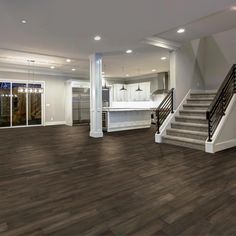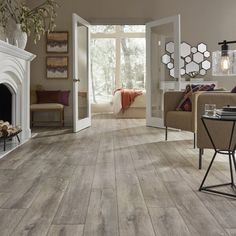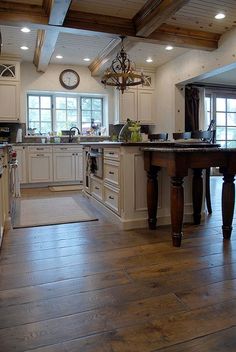Hardwood Flooring Installation Springfield Il
Floor Installers You Can Trust
Call or Text (217) 590-6582

If your looking to update your home here in the Springfield area, hardwood has probably crossed your mind. However, you may have some questions. Are hardwood floors worth the initial investment? How long will they last? Can I find some to match the vision I have for my home? We believe hardwood is a fantastic choice for your floors and here are some reasons why.

(217) 590-6582
Why choose hardwood flooring?
Hardwood floors can require a large initial investment but demonstrate their worth over and over. By choosing one of the most long-lasting and classic flooring styles available, you won’t go wrong installing wood floors in your home.
- They’re easy to maintain. – All you have to do is sweep or occasionally mop, and your floor is clean and ready to go. The ease of care ensures that your floors will continue to add value and beauty to your home for years to come.
- They never go out of style. – Unlike carpet, the look of hardwood floors is classic. Like tile, wood floors remain fashionable and current no matter how design trends change.
- They keep your home healthier. – Carpet floors can harbor dust mites and allergens. However, hardwood floors don’t hold on to anything. With only light cleaning, you can rest easy knowing that you are protecting your family from dirt or germs.
- They keep your electric bill lower. – Because wood floors insulate the room they’re in, they help keep your house comfortable. When your air conditioner or heater doesn’t have to work as hard to keep the house at the ideal temperature, your electric bill stays lower.
- They’re more environmentally friendly. – Choosing wood floors keeps manufactured products and harmful chemicals out of your home. Plus, wood is a renewable resource, which makes hardwood flooring an eco-friendly option.



Solid Hardwood vs Engineered Hardwood
Hardwood and engineered hardwood floors are both beautiful, natural options that add value to any home. It’s also very difficult to tell them apart. In order to understand the differences between hardwood and engineered hardwood floors, you must look below the surface.
Traditional hardwood, the kind that have been used by builders for hundreds of years, are cut from logs of solid wood. They are a classic choice, long associated with quality and durability.
Engineered hardwood floors are a relatively new option, compared to solid hardwood. These floorboards have a thin veneer of wood on the surface, that is fused with layers of wood underneath.
The bottom layer gives floorboards superior strength, helping them resist expansion and contraction. The veneers are usually made of hard wood and are pre-finished in the factory. They use stains and protective coatings that enhance durability.
Where to Use Solid Hardwood Flooring
Hardwood floors are recommended for almost all the rooms of a house—living rooms, dining rooms, bedrooms, and hallways. They are often featured in kitchens, but be aware that moisture can cause warping over time. Use mats or throw rugs in areas where water might drip, such as by the sink, to maintain the floors. Solid wood floors usually aren’t recommended for bathrooms because the high moisture level makes it hard to keep them in good condition, but with proper care, they can work here. It’s best not to use hardwood floors in basements—the culprit, again, is moisture.
How Long Will It last
Solid hardwood flooring can last 100 years or longer if properly maintained. it can also be sanded and refinished many times, allowing you to change the look of your floors without going through a complete remodel. As long as it is properly installed and cared for, solid hardwood flooring rarely needs to be replaced.
Where to Use Engineered Hardwood Flooring
Engineered hardwood floors are also recommended for almost all the rooms of a house-living rooms, dining rooms, bedrooms and hallways. However it also holds up in spaces that get light moisture, such as bathrooms, kitchens, basements , and over concrete floors, but isn’t going to last in a high moisture situation-a basement that tends to flood, for instance. When using engineered flooring, the moisture content in a concrete slab cannot exceed 4%, and a vapor barrier is recommended in moisture prone areas.
How Long Will It Last
The lifespan of engineered flooing depends on the thickness of the plank. Thinner types last 20 to 30 years, and thicker ones have a lifespan of 40 to 80 years. These projected lifespans may hold true for high-quality engineered hardwood flooring, but not so for a cheaply made engineered floor. It’s hard for a consumer to know the difference visually between quality engineered hardwood and a cheaper version. Price point can be one indicator, but the number of layers is a better one. The higher the number of layers the better.
The Verdict
In the right circumstances, an engineered hardwood floor can bring all the best qualities of solid hardwood to a space in your house where you might not have been able to use hardwood. Although engineered hardwood can be a good choice for some areas of your home, solid hardwood flooring is the more durable, long-lasting, classic option.

Looking For Hardwood Installation In The Springfield Il Area?


(217) 590-6582


